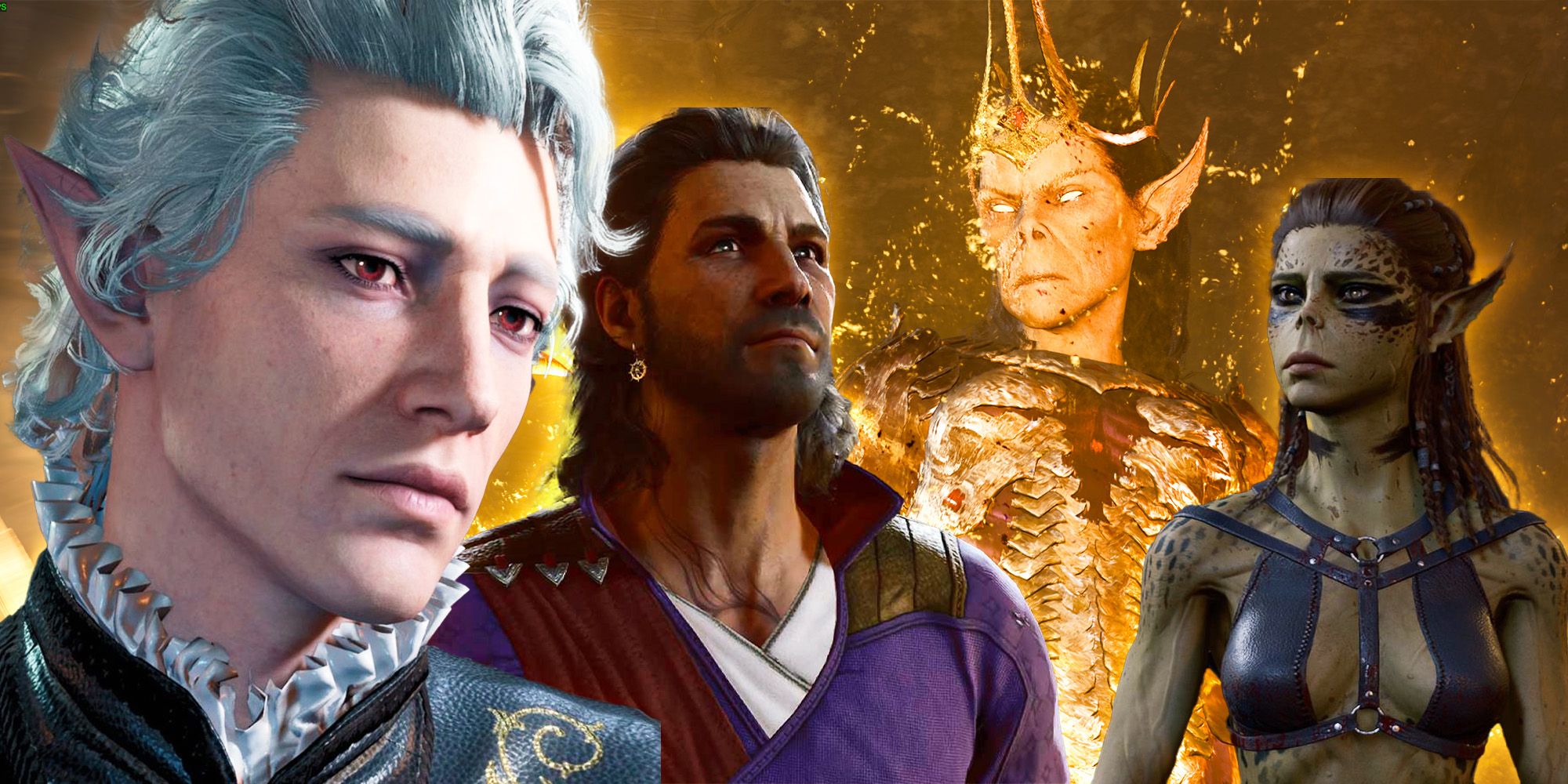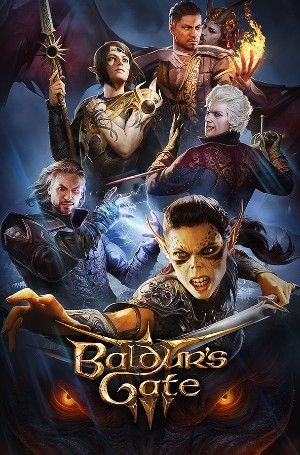Summary
- Players can trigger an instant game over in Baldur’s Gate 3 by annoying a certain god-queen.
- The special death scene can be initiated by following a specific string of dialogue options.
- The way the death is laid upon players actually reveals more about the character that kills them.
If players make the right (or wrong) choices and taunt a certain god-queen in Baldur’s Gate 3, they may be surprised by an instant wipe, which results in a game over. The CRPG by Larian Studios has been critically acclaimed due to the freedom it offers players, both in terms of combat strategies and dialogue choices. Different decisions can lead to different paths and can substantially change the entire experience. In Act 2, for instance, players can beat Gerringothe Thorm in Baldur’s Gate 3 without fighting – a feat led by wise dialogue options. The proper string of choices can lead to battles or peace on many occasions.
This article contains spoilers for Baldur’s Gate 3.
These decisions can also alter the course of the campaign and how player’s characters interact with potential allies and opponents. This becomes vastly clear during the early hours of the game – namely during the conflict between the Absolutists at the Goblin Camp and the Druids of the Emerald Grove. In fact, there are many tiny decisions in Baldur’s Gate 3 that actually have enormous story implications. One such small dialogue choice, in fact, can lead to an instant wipe on the entire party at the hands of a god-queen. This forces players to reload a previous save, as this will trigger a hilarious and unexpected game over.
Annoying Vlaakith Can Trigger A Game Over In Baldur’s Gate 3
Players can annoy the githyanki goddess and queen Vlaakith during their first interaction with her inside the Githyanki Crèche in Baldur’s Gate 3. Upon exploring the area and reaching the far north of the map, past the Captain’s Quarters, they will reach a special area with the Inquisitor, prompting Vlaakith to appear and task the group with a quest. If players ask her why she doesn’t deal with the issue herself seeing she has the power of a god, and then insist on the inquiry following the initial response, Vlaakith will become utterly furious and show the power of the gods, instantly wiping the entire party.
If Lae’zel is in the party during the interaction, she will give players a hint to “not test her” immediately after their first question about Vlaakith’s powers and why she does not kill the Dream Guardian herself.
How Vlaakith Kills The Party In Baldur’s Gate 3
Because this may happen early in the campaign, it may also be the first game over that players experience in Baldur’s Gate 3, especially if they have been doing well in combat and other such encounters. The curious thing about this is that Vlaakith does not come down to battle nor command her troops to kill everyone. Instead, as is demonstrated in a video by ZaFrostPet on YouTube, Vlaakith Wishes the player “to end.” The goddess’ Wish command is actually a spell from Dungeons and Dragons 5th Edition (5e) and one of the most powerful ones at that. In fact, it is a 9th-level Conjuration spell in the tabletop game.
Wish allows players to do a plethora of things in D&D, from duplicating spells that are 8th level or lower without having to use components, to healing creatures, obtaining a lot of Gold, casting curses, and much more. Depending on how the table is run, and the leeway players have with their DM, Wish can be used for narrative purposes as well. It is considered dangerous, too, as Wish can have various repercussions. Other than in Vlaakith’s special doom-casting cutscene, Wish is not a spell in Baldur’s Gate 3 – at least not one that is accessible to players via the vanilla version of the game.
This makes sense, as the negative repercussions of Wish in D&D can range from getting players killed to time-traveling. Having the spell in the game would be very difficult to deal with, both in terms of story and combat. If used during story interactions, Wish would have to have a special slot for personalized answers, much like racial answers in Baldur’s Gate 3. Additionally, using Wish during dialogues would also have required a full new set of outcomes, both positive and negative, depending on the player’s dice roll. During combat, Wish could also be nerfed, as the options presented would be cut down to make sense from a gameplay perspective.
It would be constraining for players to have such a free-giving spell be so limited. On the other hand, Wish would give the developers a lot of problems when creating the game, as much would have to be considered. Even if only unlocked at a higher level, players would need to be able to Wish that all Absolutists were killed or the tadpole instantly removed – if the spell were present in the game, it would certainly be one of the game-breaking mechanics of Baldur’s Gate 3, but not one that actually benefits players or the general experience provided by the CRPG.
How Vlaakith Casts Wish In Baldur’s Gate 3
Even though there is no further explanation about Vlaakith’s immense power at that specific party-wiping moment in Baldur’s Gate 3, there are more details on how she casts Wish based on previous iterations of her character in D&D. As pointed out by the commentator KingOfMadCows in ZaFrostPet’s video on YouTube, Vlaakith had a lot of liberty with how and when she cast Wish in D&D 3.5e because she was fueled by the souls of the githyanki that follow her. As the Lich Queen, she devours their souls and uses them to feed the spell’s demands, thus being able to cast Wish freely.
In Baldur’s Gate 3, Vlaakith is also the Lich Queen, and she feeds off of her ascended, githyanki followers who grow in power and become reputable in her own eyes. The truth here is that, in the game, Vlaakith is devouring her ascended to boost her own power further and take her a step closer to her so-desired godhood. This could easily be the source of her magical powers and ability to deliberately cast Wish in Baldur’s Gate 3.
Although irritating Vlaakith and getting the party instantly killed by her Wish is not beneficial, it does provide a short and entertaining moment, which simply shows off how much depth the game has. There is no way of not dying when taunting the Lich Queen, and it comes to show that, even if she is an impostor trying to become a goddess, she is still very powerful and one of the biggest villains in Baldur’s Gate 3.
Source: YouTube/ZaFrostPet
This story originally appeared on Screenrant



